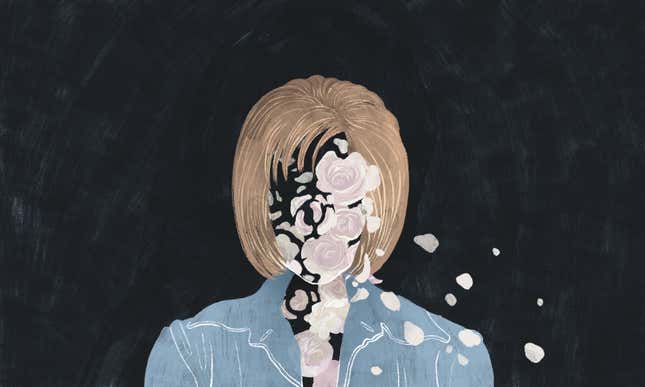I Grieved For My Mother On the Set of Nancy Grace
Latest

I went to New York to interview for a job on HLN’s Nancy Grace in September of 2008, fewer than 48 hours after my mother’s funeral. When I tell people that, they always widen their eyes. I can tell what they want to ask me: “So your mom’s funeral wasn’t even the worst day of that week?”
Those who know of Nancy Grace usually describe her as the crazy blond lady who used to yell about missing kids and their apparently terrible mothers on TV. She positioned herself as the loudest and most caring advocate for the tiny and innocent in this wicked world of sin, but she punctuated her on-air screeds with tonally baffling, numbly sensationalized tweets. She has earned criticism for, as David Carr put it in the New York Times, “rac[ing] toward judgment, heedlessly ignoring nuance and evidence on her way to finding guilt.” She remains one of the most recognizable—and perhaps reviled—cable news anchors of the last decade.
At the time I interviewed for a spot on the production team on her show, Nancy Grace, I had been working at CNN, in Atlanta, for a year. I left home in Massachusetts to work there right out of college and spent my first few months running around in high heels, handing people stacks of paper, and getting yelled at. I loved it.
Of all the CNN personalities, Nancy was the one who most fascinated me. Even before I met her, I found her demeanor so outrageous that I couldn’t believe she wasn’t acting. I would watch clips from her show on the monitors and turn to my colleagues, insisting that it couldn’t possibly be real, but must instead have been a work of such high comic genius that the American public just didn’t understand it. I soon discovered that it was all very, very real.
About six months prior to be hired full-time, I had filled in for Nancy’s floor director a couple times, which is when I first met Nancy. The first time I laid eyes on her in person, she was being wheeled into a studio, her belly swollen with unborn twins, her helmet of hair even more Lego-like in person than on TV. It was clear that impending motherhood had already made America’s most outspoken advocate for missing, abused, and murdered children even more righteous in her crusade.
I got put on the overnight shift as my own mother was dying, 1,000 miles away. I spent a summer driving to work as everyone else was going to bed. Every night, I would sit in the parking lot until I stopped crying, then walk into work red-eyed and frenzied, and sit there until morning, kept awake only by my rising panic. I wondered if I should move home to help take care of my mother, but by the time I started to seriously consider it, it was too late. I realized she was going to die—imminently—and that my life would continue on. So when a supervisor told me there was an Associate Producer job open on Nancy’s show—which would mean both a promotion and an escape from my increasingly unbearable vampiric lifestyle—I applied.
The producers I interviewed with knew about my mother, and treated me with a mix of concern and terror. They didn’t tell Nancy, and I wouldn’t have wanted them to. When the executive producer introduced us after the show, he reminded Nancy that I had worked for her before, filling in for the floor director who normally cued her toward the camera during the show, and she either remembered me or pretended to. She gently took my hand, looked her producer straight in the eye and asked, “Can I have her?” Her hands were so soft that I didn’t even think about what, exactly, she might want to do with me.
They hired me a few days later, I think in part because they felt bad for me. I now realize that if they’d really been sympathetic, they would have given the job to someone else.
Death is an event that attracts a rush of people and activity, until everyone goes back to their lives, leaving you with an empty house and too much time to think about why it feels so empty. So I went back to work in Atlanta ten days after my mother died grateful to have something else to focus on. When I started working for Nancy about three weeks later, I thought the job would be a good distraction, that it would make for an exciting escape from my misery.
-

-

-

-

-

-

-

-

-

-

-

-

-

-

-

-

-

-

-

-

-

-

-

-

-

-

-

-

-

-

-

-

-

-

-

-

-

-

-

-








































